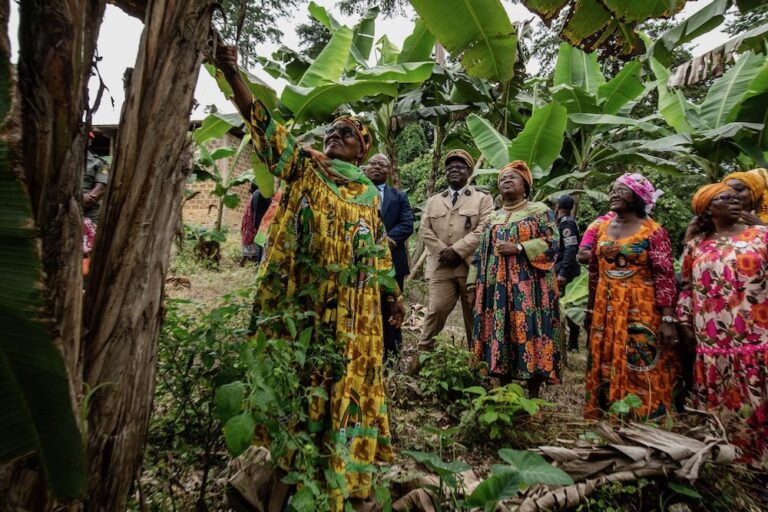(CPJ/IFEX) – The following is a 28 August 2007 CPJ press release: Cameroonian publisher sentenced to jail in absentia New York, August 28 2007 – A court in Cameroon’s northwestern town of Kumbo sentenced in absentia, on August 13, the publisher of a small English-language newspaper to a year in prison, according to the national […]
(CPJ/IFEX) – The following is a 28 August 2007 CPJ press release:
Cameroonian publisher sentenced to jail in absentia
New York, August 28 2007 – A court in Cameroon’s northwestern town of Kumbo sentenced in absentia, on August 13, the publisher of a small English-language newspaper to a year in prison, according to the national secretary of the Cameroon Journalists’ Trade Union. The sentence was related to alleged press offenses by the newspaper, which published a series of stories claiming corruption in the local government this year.
Wirkwa Eric Tayu of the private weekly The Nso Voice, the sole media outlet based in Kumbo, was sentenced to a year in prison and a fine of 850,000 CFA francs (US$1,800) on eight counts of press offenses, including criminal defamation, according to the union. Neither Tayu nor a defense lawyer were present when the sentence was handed down, defense counsel Blaise Berinyuy told CPJ, adding that Berinyuy never received a hearing notice. An appeal has been filed.
“The jail sentence against Wirkwa Eric Tayu is a blatant attempt to censor critical coverage of local government,” said Joel Simon, CPJ’s executive director. “The charges against his newspaper are flimsy and the conviction must be overturned on appeal.”
An arrest warrant was issued for Tayu after he’d gone into hiding a week before the verdict, Nso Voice Assistant Editor Alice Tomla told CPJ. Authorities detained Tayu’s father, a local tribal elder, for failing to produce his son, according to local journalists. The paper and its supplement, The Nso Voice Hotline, stopped publishing since the verdict for fear of government reprisals, Tomla said. Police have searched the paper’s offices at least three times in recent weeks, according to local journalists.
Reporters say the charges were linked to an April 23 story titled “Corruption/Embezzlement Scandal at Kumbo Urban Council,” based on a government audit report incriminating Kumbo’s mayor in corruption schemes.
The charges included publishing a supplement without authorization, according to Berinyuy. But newspapers routinely publish supplementary editions using the same government credentials, editorial policy, and staff, said Jean-March Soboth, National Secretary of the press trade union.
Authorities also accused Tayu of not depositing copies of the paper at the offices of the local prosecutor prior to sale and distribution, as stipulated under Cameroon’s 1990 press law. In remote areas and small towns, authorities enforce the rule as a way to censor content deemed obscene or a threat to public order, according to Soboth. Newspapers in urban areas no longer do so, he said.
In the region of Bui, where Kumbo is located, authorities have targeted The Nso Voice because of its critical coverage of the local government in recent years, according to CPJ research. In 2004, Tayu was jailed for eight months for allegedly defaming Kumbu’s mayor.
After an outcry from the local media earlier this year, authorities shelved a bill granting sweeping powers of suspension and editorial control of media outlets to local governments, according to Soboth.
CPJ is a New York-based, independent, nonprofit organization that works to safeguard press freedom worldwide. For more information, visit http://www.cpj.org


